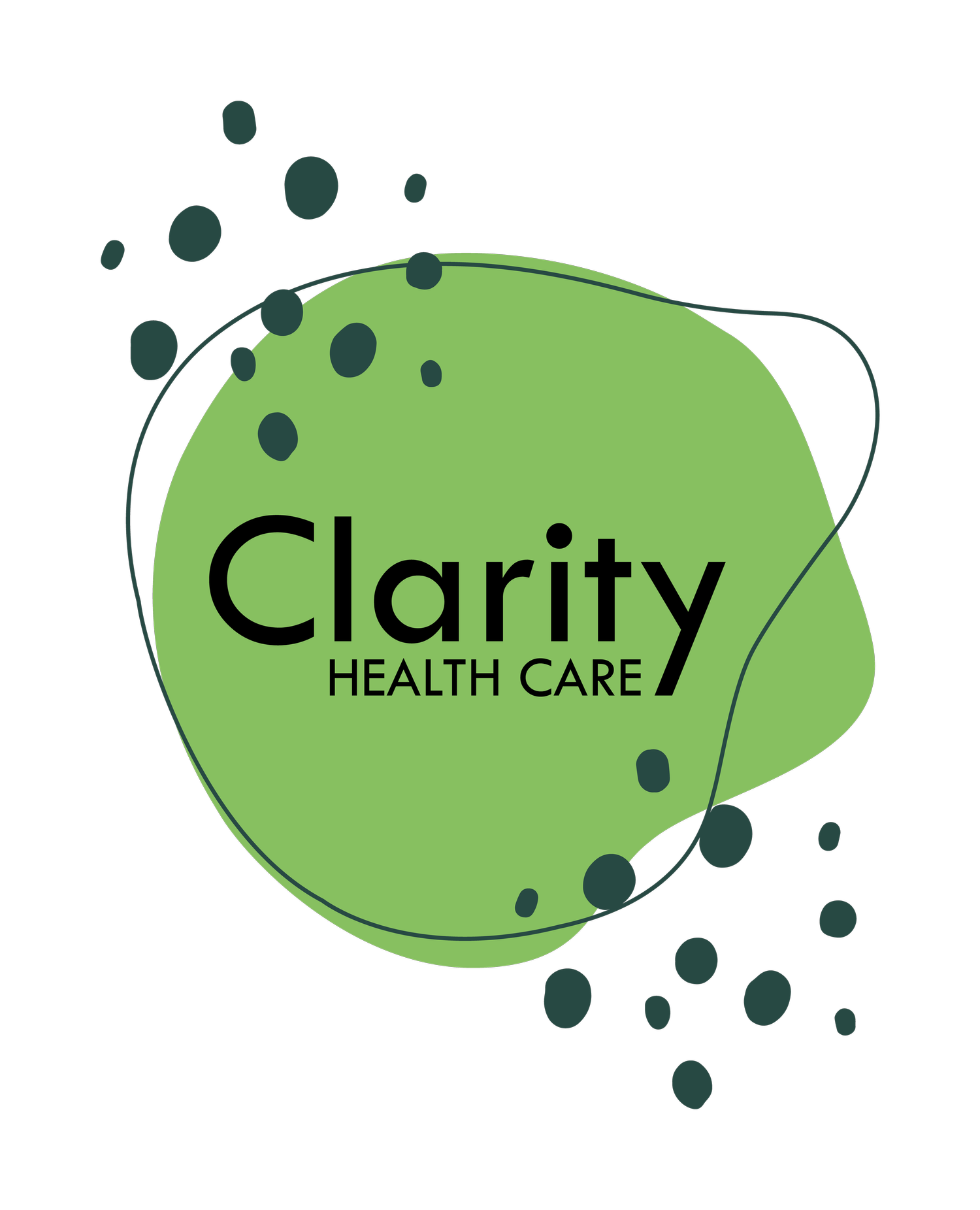
Optimal Health Program
Cannabis Harm Reduction
Written by Aimee Oliveri (Clinical Psychologist & Mental Health Content Creator) in Collaboration with Clarity Health Care
What is Cannabis?
Cannabis, known by many names including marijuana, weed, pot, hash and dope, is derived from the Cannabis sativa plant. It contains several compounds, with tetrahydrocannabinol (THC) being the primary psychoactive ingredient and cannabidiol (CBD) being the primary non-psychoactive. While some use it for medicinal purposes, prescribed by a healthcare professional, recreational use is widespread.
The Effects of Cannabis Use
Cannabis comes in different forms and the effects can vary significantly depending on the form consumed. Moreover, Cannabis affects every individual differently depending on factors like genetics, build, time of day consumed, and environment. Even the same person may have a different experience on separate occasions or over their lifetime.
Although cannabis is generally considered one of the less addictive substances, its use is not without risks, particularly when consumed without proper guidance, frequently, in high doses, or when mixed with other substances.
Short-Term Effects
If a large amount, strong batch, or concentrated form is consumed, you may experience:
- Memory problems
- Slower reflexes
- Bloodshot eyes
- Uncreased heart rate
- Anxiety and paranoia
- Balance problems
- Nausea and vomiting
- Drowsiness
Long-Term Effects
Long-term effects depend on how much, how often and how the cannabis is consumed. Heavy, regular use could potentially lead to:
- Tolerance and dependence: Those who use cannabis regularly may find they consistently need more to get the same effect, or have difficulties reducing or quitting.
- Cognitive Impairment: Long-term use can affect cognitive functions, impairing memory, attention, learning, and decision-making abilities.
- Physical Health Risks: Smoking cannabis can lead to respiratory issues similar to those caused by smoking tobacco, including sore throat, asthma and bronchitis
- Mental Health Issues: Cannabis use has been linked to an increased risk of mental health disorders, including mood swings, anxiety, depression, bipolar, and in some cases, psychosis, especially among those with a predisposition to these conditions.
Harm Minimisation Strategies
If you or someone you know engages in regular excessive cannabis use, harm minimisation is crucial. Practical ways to reduce harm when using cannabis include:
- Replace dope smoking with new activities and interests.
- Roll smaller joints / don’t pack your cones so full.
- Smoke leaf, not heads.
- Smoke naturally grown cannabis, not hydroponically grown.
- Avoid bucket bongs and hot knives.
- Pick your smoking times (for example, between 5.00pm and 8.00pm) and don’t smoke outside of that time.
- Try to avoid smoking first thing in the morning.
- Stop after one cone / joint and wait a bit longer before your next one.
- Space your joints or cones further apart.
- Decide how many cones or joints you are going to limit yourself to, and stick to it.
- Remove things from the home that remind you of using cannabis.
- Avoid operating machinery, driving or swimming.
- Try to avoid inhaling too deeply or holding your breath.
- Avoid synthetic cannabinoid products such as K2 or Spice
Individuals with a family history of serious mental illnesses such as schizophrenia or bipolar disorder – or who currently experience symptoms of these conditions – should avoid using cannabis.
Steps for Quitting
Reducing or quitting Cannabis can be challenging, but it's possible with the right support and strategies in place. Consider the following:
- When people stop using drugs or alcohol, they often go through a period of withdrawal which can extremely challenging and at times, medically dangerous.
- People with chemical dependence frequently require support with planning ahead, goal setting, coping strategies, and overall health management including vitamin supplementation to aid them in the process.
- Medical professionals can prescribe medications to help alleviate withdrawal symptoms and cravings associated with Cannabis dependence, otherwise known as Medication-Assisted Treatment. These medications, when used in conjunction with counselling and lifestyle changes, can help make it easier to not use drugs or alcohol.
- When individuals have a predisposition to or a history of mental health issues, the impacts of introducing, reducing, or removing chemical substances from their system can be unpredictable, often necessitating additional support during this period.
Thus, taking steps to reduce or quit cannabis is best done under the guidance of qualified professionals to ensure safety and increase chances of success.
Getting Help
If you’re struggling with reducing cannabis use or quitting, don't go it alone. Reach out to friends, family, or professionals who can provide support and encouragement. In Australia, there are several avenues for seeking help with cannabis use:
- See your Doctor for information and referral
- Call the National Alcohol and Other Drug Hotline on 1800 250 015 for free and confidential advice, information and counselling
- Path2Help: Use the Alcohol and Drug Foundation’s free, online platform that helps you find alcohol or other drug services near you.
- Websites like The Alcohol and Drug Foundation provide resources and information on cannabis use.
